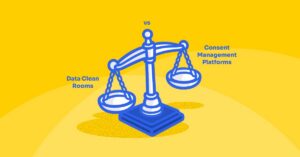Introduction
Data privacy has become a critical concern for businesses and individuals in recent years. With the increasing amount of data being collected and stored, the risk of data breaches and privacy violations has also risen. Organizations must understand the importance of data privacy management and implement comprehensive compliance programs to protect sensitive data and ensure regulatory compliance.
There is no legal definition of Data Privacy
While there is no legal definition of data privacy, it generally refers to protecting personal information or data from unauthorized access, use, or disclosure. Personal data can include any information that can be used to identify an individual, such as their name, address, date of birth, social security number, email address, or phone number. Data privacy regulations aim to protect individuals’ rights to control their personal data and prevent misuse or abuse of their information.
What are the benefits of complying with Data Privacy laws?
Complying with data privacy laws can provide several benefits for individual users and businesses, including:
Building customer trust and loyalty
Reducing the risk of privacy breaches and data loss
Avoiding hefty fines and legal consequences
Enhancing reputation and brand image
Improving data quality and accuracy
Strengthening access controls and security measures
Demonstrating compliance with regulatory requirements
Data laws and acts worldwide
Data privacy laws and acts vary worldwide, and organizations must comply with the regulations that apply to their business operations. Some of the critical data privacy laws and acts worldwide include:
GDPR (Europe)
CCPA/CPRA (US)
HIPAA (US)
IPAA (US)
Data Protection Directive (Europe)
Personal Information Protection and Electronic Documents Act (PIPEDA) (Canada)
Personal Data Protection Act (Singapore)
Act on the Protection of Personal Information (APPI) (Japan)
Lei Geral de Proteção de Dados Pessoais (LGPD) (Brazil)

The most common data privacy regulations
The most common data privacy regulations worldwide are the following:
General Data Protection Regulation (GDPR): This European Union regulation outlines strict data protection laws and imposes hefty fines for non-compliance. It applies to any organization that collects, processes, or stores the personal data of EU citizens.
California Consumer Privacy Act/California Privacy Rights Act (CCPA/CPRA): This US regulation grants California residents the right to know what personal information businesses collect, how it is used, and the right to request deletion or opt-out of data sharing.
Health Insurance Portability and Accountability Act (HIPAA): This US regulation aims to protect the privacy and security of individuals’ health information and requires healthcare providers to implement strict data security measures and privacy policies.
Insurance Portability and Accountability Act (IPAA): This US regulation outlines data privacy laws and requires financial institutions to protect personal information, including banking and financial data.
Data Protection Directive: This European Union regulation outlines comprehensive data protection laws and sets data controllers’ and processors’ requirements.
Data Privacy vs. Data Security?
Data privacy and data security are closely related but distinct concepts. Data privacy refers to protecting personal information from unauthorized access, use, or disclosure, while data security aims to protect data from loss, theft, or damage. While, both data privacy and security involve protecting data, they focus on different aspects of data protection.
Effective data privacy practices should include both data security measures and adherence to data privacy regulations. Businesses and organizations should take appropriate steps to protect sensitive data, such as personally identifiable information (PII), medical information, and financial information.
However, even if data is properly secured, it may still be subject to privacy breaches if it is mishandled or shared without proper consent. Businesses must ensure that their employees and partners are appropriately trained on data privacy compliance and that appropriate controls are in place to prevent unauthorized access or sharing of sensitive customer data.
The Data Privacy landscape today
The data privacy and legal landscape also has evolved significantly, with increased awareness of privacy risks and the need for comprehensive data protection laws. Data breaches and privacy violations can result in significant financial losses and legal consequences, making it essential for organizations to implement vital data privacy compliance programs.

Implementing a Data Privacy compliance program
To implement a comprehensive data privacy compliance program, businesses should consider the following steps:
Assessing the current data privacy landscape: Before implementing a data privacy compliance program, businesses must evaluate the present data privacy landscape. This includes identifying the types of data they collect, process, and store and the data protection laws and regulations that apply to them.
Creating a data privacy policy: A data privacy policy is a document that outlines how a business collects, processes, and stores personal data. It should also include information on how customers can exercise their rights regarding their personal data. The policy should be written in clear and easy-to-understand language.
Appointing a data protection officer (DPO): Some data protection regulations and privacy laws, such as the General Data Protection Regulation (GDPR), require businesses to appoint a DPO. A DPO is responsible for overseeing the organization’s data privacy compliance program and ensuring that it meets the requirements of applicable data protection laws and regulations.
Ensuring access controls: Access controls are security measures that limit access to personal data to authorized personnel. Businesses should ensure access controls are in place to prevent unauthorized access to personal data.
Ensuring data confidentiality: Businesses should take measures to ensure that personal data is kept confidential. This includes implementing security measures such as encryption and access controls.
Regularly training employees: Employees play a critical role in ensuring data privacy compliance. Businesses should regularly train employees on data privacy best practices and their data privacy obligations under data protection laws and regulations.
Conducting regular audits: Regular audits can help businesses identify gaps in their data privacy compliance program and take corrective action.
Demonstrating compliance: Finally, businesses should be able to demonstrate compliance with data protection laws and regulations. This may have compliance challenges that include keeping records of data processing activities, conducting regular risk assessments, and responding promptly to data breaches.
Why is Data Privacy important?
Data privacy is important for several reasons. First and foremost, it helps protect individuals’ fundamental right to privacy. In an increasingly digital world where more and more personal data is collected and shared, individuals should have the right to control how their data is used and who has access to it.
Additionally, data privacy is important for maintaining customers’ trust. A business mishandling or improperly sharing data or customers’ information can damage its reputation and lead to financial loss. Many data privacy regulations, such as the General Data Protection Regulation (GDPR) and the California Consumer Privacy Act/California Privacy Rights Act (CCPA/CPRA), impose hefty fines for non-compliance.
Moreover, data privacy is essential for protecting digital data against identity theft and other malicious activities. If sensitive data such as PII, financial information, or health information falls into the wrong hands, it can be used for fraudulent activities, which can cause significant harm to individuals.

Personal data protection
Personal data protection is a critical aspect of data privacy. Personal data refers to any information that can be used to identify an individual, such as their name, address, email, phone number, social security number, or IP address.
Effective personal data protection practices should include the following:
Implementing access controls: Access controls are critical for protecting personal data from unauthorized access. It involves defining who has access to sensitive data and what they can do with it. This could be achieved through passwords, encryption, multi-factor authentication, and other measures.
Ensuring data confidentiality: Confidentiality is an essential aspect of personal data protection. Organizations should keep personal data confidential and not disclose it to unauthorized individuals. This could be achieved through encryption, data masking, and other techniques that render data unreadable to unauthorized persons.
Data quality: Data quality refers to ensuring that personal data is accurate, complete, and up-to-date. This is important because inaccurate data could lead to incorrect decisions or actions. Organizations should establish policies and procedures for verifying and updating personal data to ensure data confidentiality and accuracy.
Data sharing: Organizations should carefully consider sharing personal data with third parties. Before transferring personal data, they should obtain consent from the data subjects and ensure appropriate safeguards are in place to protect the data.
Data sovereignty: Data sovereignty refers to the idea that personal data should be subject to the laws and regulations of the country in which it was collected. This means that organizations should consider the legal requirements of the countries where they operate when handling personal data.
Security measures: Security measures such as firewalls, intrusion detection and prevention systems, and other tools can help prevent data breaches and unauthorized access to personal data. Organizations should regularly review and update their security measures to ensure they are effective against the latest threats.
Compliance with regulations and privacy principles: Organizations should comply with applicable data privacy laws and regulations when handling personal data. This includes ensuring that data is collected, processed, and stored under the requirements of the relevant laws and regulations.
Proper handling and breach response: Organizations should have policies and procedures for handling personal data breaches. These should include measures to contain the breach, assess the impact of the data breach, and notify affected individuals and authorities as required by law.
What are some of the challenges users face when protecting their online privacy?
Despite the increasing importance of data privacy, users face many challenges in protecting their online privacy. Some of these challenges include:
Complexity: Data privacy can be a complex and technical subject, making it challenging for users to understand how their personal data is being used and take appropriate steps to protect it.
Lack of awareness: Many users are unaware of the data privacy risks they face online, such as phishing, identity theft, and social engineering attacks. This lack of awareness can make it difficult for users to recognize potential threats and take steps to protect themselves.
Inadequate tools: Users often lack the right tools and knowledge to protect their online privacy effectively. This includes tools for managing their online accounts, securing their devices, and encrypting their communications.
Limited control: Users often have limited control over how their personal data is collected, processed, and shared by online companies. This can make it difficult for users to understand or limit their data collection.
Third-party risks: Users face the challenge of trusting third-party companies that may not have the same level of commitment to data privacy as the user. These companies may collect, process, or share data without the user’s consent, increasing the risk of data privacy breaches.
Misleading policies: Many online companies have complex and confusing data privacy policies that may not be transparent or clear to the user. This can make it challenging for users to understand the company’s data privacy practices and make informed decisions.
Limited resources: Many users do not have the resources or time to invest in protecting their online privacy. This can make it challenging for them to stay up to date with the latest data privacy risks and best practices.
Importance of transparency
Transparency is an essential aspect of data privacy. It involves making clear and accessible information about how personal data is collected, processed, and used. By promoting transparency, companies can build trust with their customers and demonstrate their commitment to protecting their personal data. Transparency can also help users make informed decisions about their products and services. For example, if a company is transparent about its data privacy practices, users can decide whether to share their personal data with that company or use an alternative product or service.
To promote transparency, companies should provide clear and concise privacy policies that explain their data privacy practices. They should also make it easy for users to access and manage their personal data, such as providing options for deleting or correcting data.

Examples of Data Privacy risks
There are several examples of data privacy risks that individuals and organizations face, including:
Phishing: Phishing is a common data privacy risk involving using fake emails or messages to trick individuals into providing their personal information, such as login credentials or financial information.
Malware: Malware is a type of software designed to harm a computer or network. It can be used to steal personal data, track online activity, or gain unauthorized access to a computer or network.
Identity theft: Identity theft involves the theft of personal information, such as Social Security numbers, credit card numbers, or other sensitive data, to commit fraud or other illegal activities.
Data breaches: Data breaches occur when personal data is stolen or accessed by unauthorized parties. Data breaches can result in identity theft, financial loss, or damage to an organization’s reputation.
Social engineering: Social engineering involves psychological manipulation to trick individuals into providing their personal information or accessing their computers or network.
Conclusion
Data privacy management is a critical issue in today’s digital world. Companies must prioritize consumer data privacy and implement data protection practices to protect sensitive data and comply with data privacy regulations. By doing so, they can build customer trust and differentiate themselves from competitors. At the same time, individuals must also protect their data privacy, such as being mindful of what information they share online and using strong passwords and access controls. As data privacy regulations continue to evolve, companies and individuals alike need to stay informed and take action to protect personal data.




